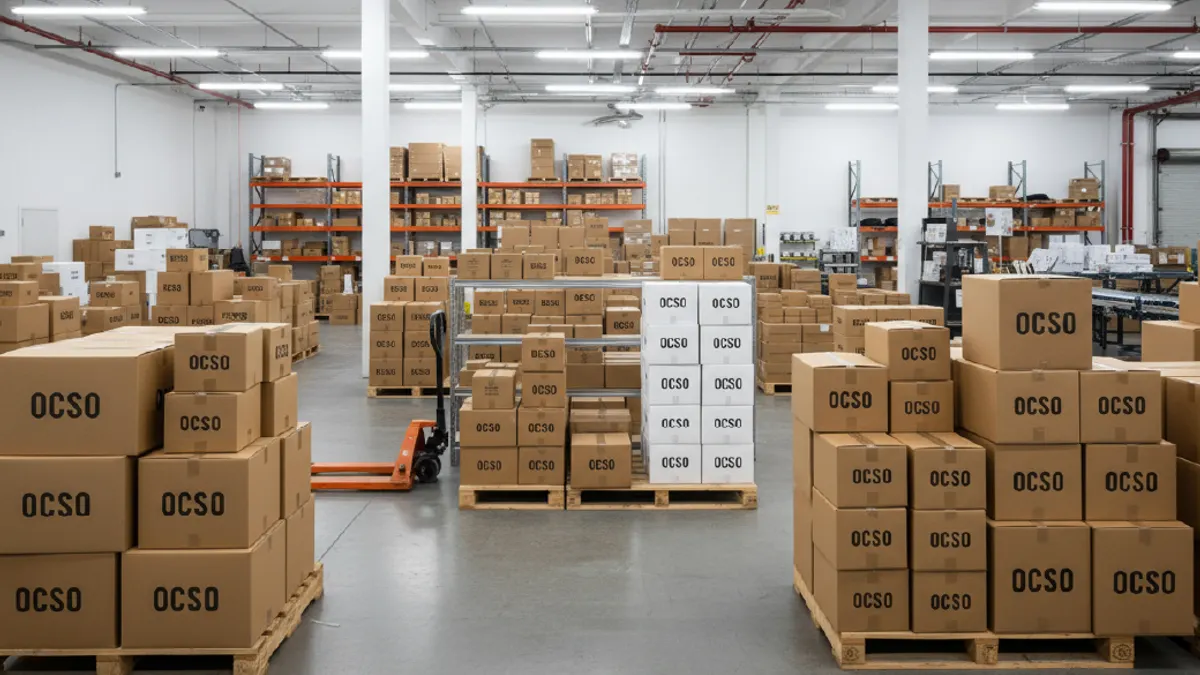As peak season gets underway, warehouse and supply chain teams across the industry brace themselves, their facilities, and their teams for the most demanding stretch of the year. Alongside this wave of planning and anticipation, however, another pattern often emerges: an assumption that unavoidable chaos, failure, and delays will overshadow best efforts to deliver on customer promises.
Why is peak season so often approached with such guarded expectations? Because history has conditioned leaders to believe that the busiest time of the year is defined by putting out fires. As a result, they expect disruption — and they assume that their job is to simply “get through” whatever comes.
But this year is starting to look different. Instead of enduring another stressful stretch marked by fulfillment gaps, a new outlook is emerging. Leaders in a recent Deposco survey reveal a renewed focus on leaning into solutions that will empower their teams to take control, overcome obstacles, and seize new opportunities.
Resignation has been the unspoken peak season mindset
Despite all the shifts and advances in fulfillment and supply chain management, the industry has long battled this underlying sense of resignation when it comes to peak season. In a 2024 Deposco survey, for example, over half of supply chain leaders said they were entering peak season with a goal of avoiding disaster instead of aiming to improve performance.
The culprit? Legacy fulfillment systems that tend to push managers into a reactive mode. This often forces them to accept the realities of late shipments, ballooning labor expenses, and an increase in order errors. It’s a cycle that breeds fatigue, high turnover, and a culture of merely “making it through.” It leaves little time for leaders to intentionally focus on continuous improvement, innovation, or strategic problem-solving.
Pushing past old limits with a new mindset
This year, forward-thinking leaders are telling a new story. The Deposco 2025 Peak Season Confidence Report shows that 84% of leaders are confident in their fulfillment systems, with 76% expecting to outperform their competitors and 66% forecasting stronger profitability over 2024. What’s more, 54% of leaders view 2025 as less challenging than 2024. This is a major drop from the 77% who expected worsening conditions just a year ago.
These insights signal a dramatic change in mindset. It’s also a sign that supply chain organizations are no longer settling, improvising, or bracing for the worst. Instead, they’re breaking out of resignation and relying on modern, unified supply chain platforms as their foundation.
Cloud-based WMS is delivering results
A critical part of breaking free from the “bracing-for-the-worst” mindset involves risk-proofing operations well ahead of the peak-season rush. By shifting away from the limits of legacy systems that offer slow, limited innovation and bottlenecks, leaders are unleashing the power of real-time visibility and predictive intelligence across their operations.
This change in approach enables organizations to navigate peak season proactively and with more confidence and control. Deposco research shows that 84% of leaders are using integrated cloud warehouse management systems (WMS) to do just that. These unified supply chain platforms deliver predictive analytics, real-time visibility, robust yet simple integrations, and automated workflows.
This transformation helps replace resignation with readiness, giving teams the information they need to:
- Spot potential problems before customers feel the impact
- Use predictive analytics for smarter demand forecasting and labor planning
- Automatically track inventory and orders to keep fulfillment on track
- Streamline multi-channel fulfillment from a single platform
- Scale operations efficiently as volumes spike or business grows
- Capture and share operational insights to fuel ongoing improvement
With these capabilities, companies are seeing measurable results as volumes spike, such as improved delivery performance, dramatic cost reductions, and streamlined scaling.
Turning disruptions into performance wins
Modern platforms make it possible to not only “survive” peak season but thrive under its demands. Instead of entering peak with a reactive mindset, disruptions become validations of proactive systems and cultures that are designed to adapt quickly and maintain performance. When this shift happens, fulfillment teams are empowered, customers become more loyal, and sales growth accelerates.
When equipped with real-time intelligence and unified solutions, warehouse and supply chain teams have the opportunity to reclaim peak season. It’s no longer about what’s lost in the scramble; it’s about breaking the cycle, setting new standards, and consistently meeting delivery targets, no matter the pace or volume.
This year, readiness and resilience are winning out over resignation, proving that control and opportunity can shape the season ahead.
To demonstrate this approach and offer supply chain leaders a break from seasonal chaos, Deposco created Supply Chain Nightmares, an interactive “who-done-it” mystery game alongside strategies to combat retail’s operational challenges during Peak 2025. Visit Supply Chain Nightmares.











